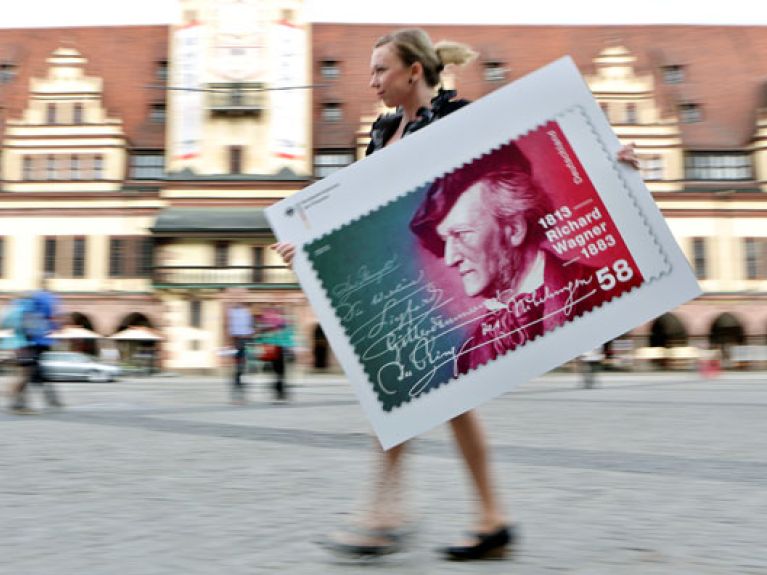Richard Wagner bicentenary
The composer epitomises the change to musical modernity. He led an eventful life that involved crossing many boundaries.

He is honoured and hated. People are divided by his music and his world view: Richard Wagner was born in Leipzig on 22 May 1813 and died in Venice in 1883. His contemporaries were often overtaxed by his music, while posterity has tended to be irritated by the abysses of his character. Indisputably, however, the self-confident Saxon was the first composer to take the step into musical modernity in 1865 with his music drama Tristan und Isolde. “An opera of comparable size, intensity, harmonic complexity, equivalent instrumentation, sensuality, mythological force and imagination had not existed before Tristan und Isolde,” writes musicologist and Wagner expert Wolfgang Sandner.
The Ring of the Nibelungs – a 16-hour music marathon, spread over four evenings – was also revolutionary. Wagner’s magnum opus used the world of the Germanic gods from the Saga of the Nibelungs as a template for a major critique of society at the end of which the world goes up in flames. Wagner worked on the Ring for 26 years until it fulfilled his ambition as a Gesamtkunstwerk that combined poetry, drama and music. Convinced of his compositional genius, he had a vision of creating a “work of art of the future” with the opera. In August 1876 the Ring opened the first Bayreuth Festival, the music event that has remained a magnet for Wagnerians until today.
The musician led an unsettled life. Wagner celebrated his first successes in Dresden with the opera Rienzi. This was followed by The Flying Dutchman, Tannhäuser and Lohengrin. In Dresden Wagner participated in the May Revolution of 1849, became a wanted man and had to flee first to Paris and later to Zurich. Wagner actually spent most of his life in exile in Switzerland or on the run from creditors – he liked to live beyond his means. The composer was married twice and had many affairs. Conventions did not concern him. His second wife, Cosima, the daughter of piano virtuoso Franz Listz, had previously been married to Wagner’s friend and colleague Hans von Bülow.
During Wagner’s bicentennial year, many cities associated with the composer’s life are commemorating the late romantic’s 200th birthday with performances, exhibitions and discussions. In particular, Leipzig, Dresden, Munich and naturally his last home town Bayreuth are offering events during Wagner Year.
The 200th anniversary of Richard Wagner’s birth is on 22 May 2013
© www.deutschland.de

